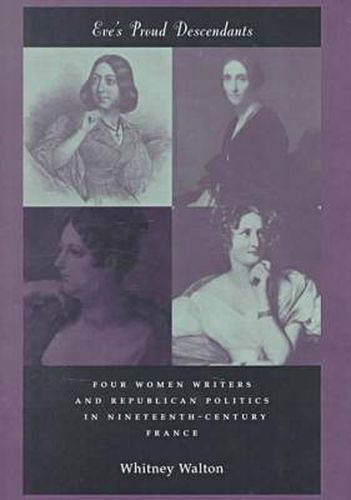Readings Newsletter
Become a Readings Member to make your shopping experience even easier.
Sign in or sign up for free!
You’re not far away from qualifying for FREE standard shipping within Australia
You’ve qualified for FREE standard shipping within Australia
The cart is loading…






How could women in postrevolutionary France act politically when they lacked political rights, and how could they support an exclusively masculine republicanism? This is a study of four female authors who wrote women into politics and into republicanism by articulating a model of republican womanhood between the two poles of feminist equality and republican motherhood. These four writers were George Sand, Marie d Agoult, Hortense Allart, and Delphine Gay de Girardin. Each figure constructed herself as a republican woman, as a female with certain public capabilities, and as a model for other women. They also rewrote the republican script regarding family relations, positing egalitarian alternatives to the patriarchal family of male republicanism. Although ostensibly they did not challenge male exclusivity in the possession of political rights, they significantly undermined its foundation in the gendered separation of social spheres.
$9.00 standard shipping within Australia
FREE standard shipping within Australia for orders over $100.00
Express & International shipping calculated at checkout
How could women in postrevolutionary France act politically when they lacked political rights, and how could they support an exclusively masculine republicanism? This is a study of four female authors who wrote women into politics and into republicanism by articulating a model of republican womanhood between the two poles of feminist equality and republican motherhood. These four writers were George Sand, Marie d Agoult, Hortense Allart, and Delphine Gay de Girardin. Each figure constructed herself as a republican woman, as a female with certain public capabilities, and as a model for other women. They also rewrote the republican script regarding family relations, positing egalitarian alternatives to the patriarchal family of male republicanism. Although ostensibly they did not challenge male exclusivity in the possession of political rights, they significantly undermined its foundation in the gendered separation of social spheres.